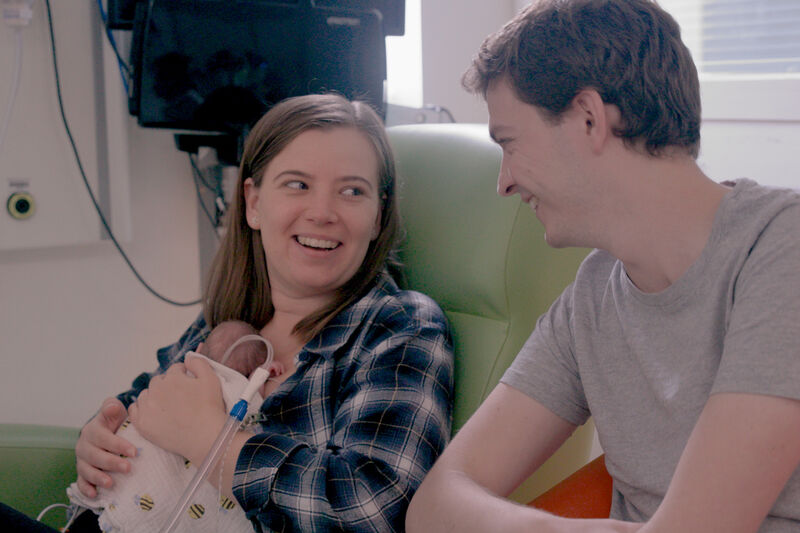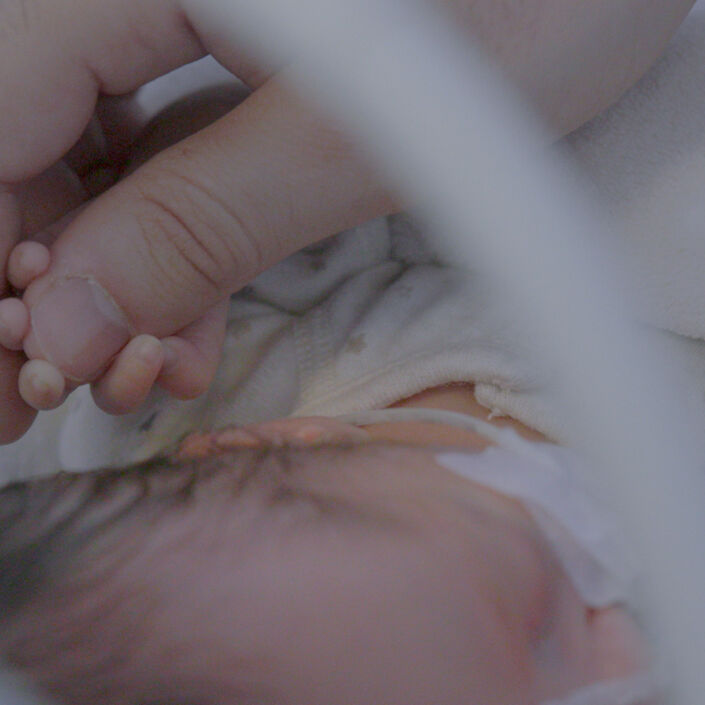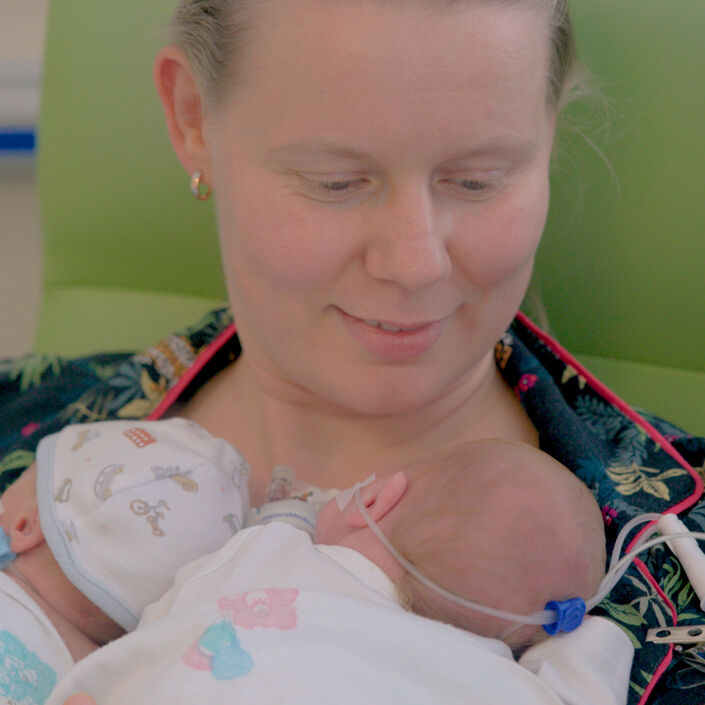This section looks at what parents have told us about how they would like to be involved in their babies’ procedures. These include suggestions from parents and neonatal healthcare professionals for improving the process of involving parents in procedures.
We understand that the challenging reality of working in neonatal units means that some of these suggestions will not always be possible to follow. We hope that by sharing the views of parents and healthcare professionals in this way, we can work together to improve care on units for babies and their parents.
What research says about parents’ involvement in procedures
There is significant research to show that physical contact from parents can reduce a baby’s experience of pain during medical procedures. Our suggestion is that parents should be invited to be involved in procedures as much they want to be, from as early as practically possible.
Bliss has recently conducted research with parents about how they view painful procedures and how they would like to be involved. We have also conducted research with neonatal staff, to understand how communication with parents and support can be improved.
While many parents reported a positive experience around communication in the neonatal unit, of the 160 parents that responded to our survey, 53% of them said that they had not been aware that they could have had a positive impact on their baby by being involved during procedures.
Visit our page about research into parents involvement in neonatal procedures for more information.


